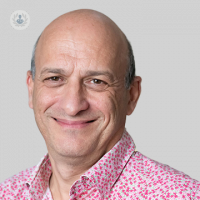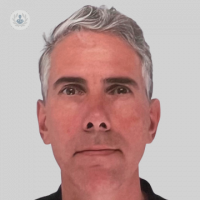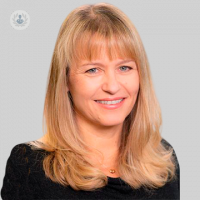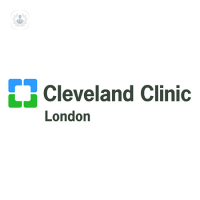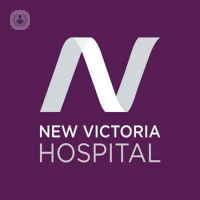What is PKD?
Polycystic kidney disease (PKD) is a genetic kidney disorder in which large cysts (big fluid sacs) form on the kidneys. These cysts increase kidney size and reduce functional tissue.
You should see a nephrologist for treatment.

What are the symptoms?
There are some cases where the symptoms are so mild that the person doesn’t realise they have this condition. In most other cases, the symptoms may include:
- Pain in the sides (one or both sides)
- Abdominal pain or tenderness
- Blood in the urine and excessive urination at night
- Arterial hypertension
- Colic type pain caused by kidney stones
- Drowsiness
- Nail abnormalities.
What causes it?
As mentioned, the condition is hereditary. However, polycystic kidney disease is also associated with the following conditions:
- Aortic or brain aneurysms
- Liver, testicular, or pancreas cysts
- Diverticulum of the colon.
It is though that 50% of people who have PKD also have liver cysts.
How can it be prevented?
There isn’t a known way to avoid polycystic kidney disease. As it is a hereditary disorder, the transmission risk can be calculated if a family member has had it.
What is the treatment?
Treatment aims to manage symptoms and prevent complications. Treatment includes:
- Blood pressure medicine
- Diuretics
- Low-salt diet.
It may be necessary to drain any cysts which are infected, that bleed, or are causing a blockage.
Quite often there are multiple cysts and it is not feasible to remove them one by one. Sometimes it is necessary to remove one or both kidneys.
01-09-2013 09-27-2023Polycystic kidney disease (PKD)
Professor Jeremy Levy - Nephrology
Created on: 01-09-2013
Updated on: 09-27-2023
Edited by: Kate Forristal
What is PKD?
Polycystic kidney disease (PKD) is a genetic kidney disorder in which large cysts (big fluid sacs) form on the kidneys. These cysts increase kidney size and reduce functional tissue.
You should see a nephrologist for treatment.

What are the symptoms?
There are some cases where the symptoms are so mild that the person doesn’t realise they have this condition. In most other cases, the symptoms may include:
- Pain in the sides (one or both sides)
- Abdominal pain or tenderness
- Blood in the urine and excessive urination at night
- Arterial hypertension
- Colic type pain caused by kidney stones
- Drowsiness
- Nail abnormalities.
What causes it?
As mentioned, the condition is hereditary. However, polycystic kidney disease is also associated with the following conditions:
- Aortic or brain aneurysms
- Liver, testicular, or pancreas cysts
- Diverticulum of the colon.
It is though that 50% of people who have PKD also have liver cysts.
How can it be prevented?
There isn’t a known way to avoid polycystic kidney disease. As it is a hereditary disorder, the transmission risk can be calculated if a family member has had it.
What is the treatment?
Treatment aims to manage symptoms and prevent complications. Treatment includes:
- Blood pressure medicine
- Diuretics
- Low-salt diet.
It may be necessary to drain any cysts which are infected, that bleed, or are causing a blockage.
Quite often there are multiple cysts and it is not feasible to remove them one by one. Sometimes it is necessary to remove one or both kidneys.
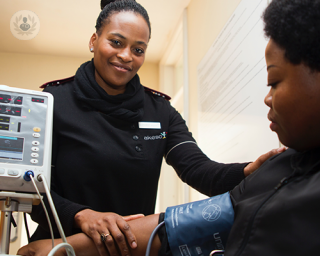

Chronic kidney disease: What you need to know
By Dr Rhys Evans
2025-01-13
Leading consultant nephrologist Dr Rhys Evans discusses everything you need to know about chronic kidney disease (CKD) in this informative article. See more


What lifestyle changes can help patients with kidney disease?
By Dr Peter Hill
2025-01-13
Having kidney disease means your kidneys’ ability to filter and clean your blood is hindered. This can have several effects on your health because without well-functioning kidneys, your body is not able to remove toxins from the body. If your kidney disease is not advanced, certain lifestyle changes can help to reduce symptoms and to provide longevity to your kidneys. Dr Peter Hill, a renowned nephrologist, discusses the symptoms of PKD, and the lifestyle modifications that are necessary for those diagnosed with kidney disease. See more
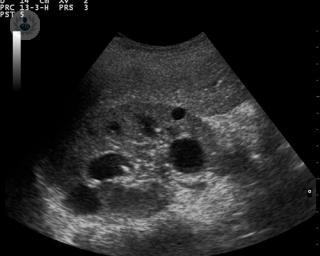

All about polycystic kidney disease (PKD)
By Professor Jeremy Levy
2025-01-12
Renal cysts often cause no symptoms, so you might not even know you have polycystic kidney disease (PKD). Read on to find out more... See more
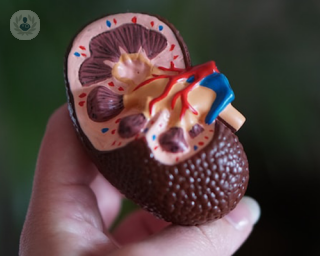

Autosomal dominant polycystic kidney disease (ADPKD): Your expert guide
By Dr Daniel Jones
2025-01-07
Renowned consultant nephrologist Dr Daniel Jones provides his expert insight on autosomal dominant polycystic kidney disease in this informative guide designed for patients, including diagnosis and symptom management. See more
Experts in Polycystic kidney disease (PKD)
-
Dr Peter Hill
NephrologyExpert in:
- Nephropathy (Kidney disease)
- Kidney infection
- Acute kidney injury (AKI)
- Hypertension (high blood pressure)
- Polycystic kidney disease (PKD)
- Chronic kidney disease
-
Professor Jeremy Levy
NephrologyExpert in:
- Chronic kidney disease
- Diabetic nephropathy
- Glomerulonephritis
- Polycystic kidney disease (PKD)
- Proteinuria (protein in the urine)
- Urinary tract infection
-
Dr Daniel Jones
NephrologyExpert in:
- Proteinuria (protein in the urine)
- Haematuria (blood in the urine)
- Chronic kidney disease
- Polycystic kidney disease (PKD)
- Diabetic nephropathy
- Acute kidney injury (AKI)
-
Dr Richard Hull
NephrologyExpert in:
- Chronic kidney disease
- Diabetic nephropathy
- Glomerulonephritis
- Proteinuria (protein in the urine)
- Hypertension (high blood pressure)
- Polycystic kidney disease (PKD)
-
Dr Claire Sharpe
NephrologyExpert in:
- Hypertension (high blood pressure)
- Renal denervation
- Renal artery embolism
- Polycystic kidney disease (PKD)
- Diabetic nephropathy
- Chronic kidney disease
- See all

Cleveland Clinic London Hospital
Cleveland Clinic London Hospital
33 Grosvenor Place
No existe teléfono en el centro.
By using the telephone number provided by TOP DOCTORS, you automatically agree to let us use your phone number for statistical and commercial purposes. For further information, read our Privacy Policy
Top Doctors

Cleveland Clinic Portland Place Outpatient Centre
Cleveland Clinic Portland Place Outpatient Centre
24 Portland Place, W1B 1LU
No existe teléfono en el centro.
By using the telephone number provided by TOP DOCTORS, you automatically agree to let us use your phone number for statistical and commercial purposes. For further information, read our Privacy Policy
Top Doctors

New Victoria Hospital
New Victoria Hospital
184 Coombe Lane West, Kingston upon Thames, KT2 7EG
No existe teléfono en el centro.
By using the telephone number provided by TOP DOCTORS, you automatically agree to let us use your phone number for statistical and commercial purposes. For further information, read our Privacy Policy
Top Doctors
-
Cleveland Clinic London Hospital
33 Grosvenor Place, Central LondonExpert in:
- Cardiology
- Colorectal surgery
- Minimal access surgery (keyhole surgery)
- Gallbladder surgery
- Diagnostic Imaging
- Ultrasound
-
Cleveland Clinic Portland Place Outpatient Centre
24 Portland Place, W1B 1LU, Central LondonExpert in:
- Diagnosis of Cancer
- Diagnostics
- Women’s health
- Sports Medicine
- General practice
- Health check up
-
New Victoria Hospital
184 Coombe Lane West, Kingston upon Thames, KT2 7EG, South LondonExpert in:
- Cardiology
- General Surgery
- Orthopaedic surgery
- Breast augmentation
- Pain management
- Spine
- See all
- Most viewed diseases, medical tests, and treatments
- Kidney stones
- Metabolic disorder
- Robotic surgery
- Hypertension (high blood pressure)
- Diabetes
- Atherosclerotic renal disease
- Pregnancy and kidney disease
- Kidney cancer
- Diabetic nephropathy
- Dialysis
